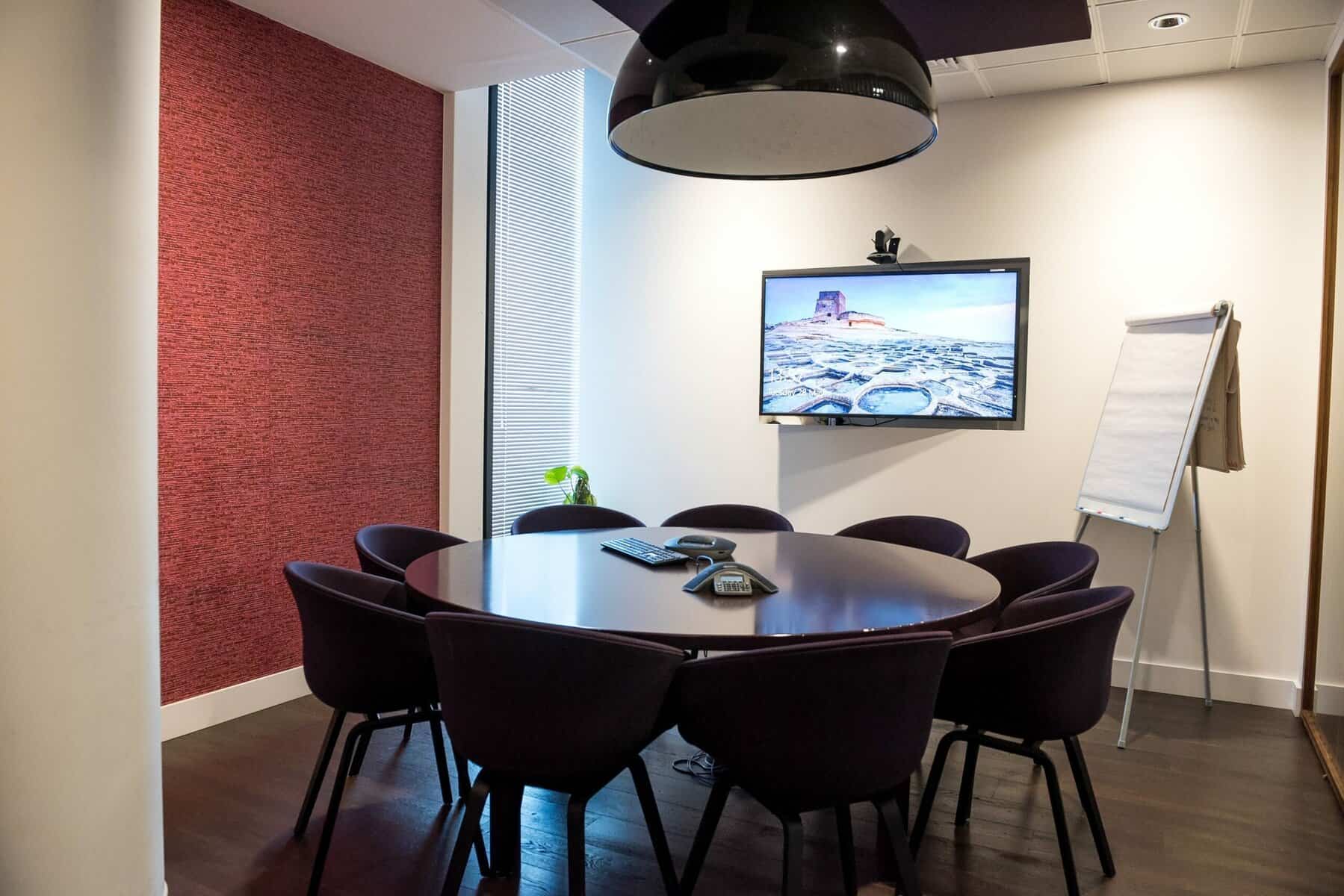5 Questions To Ask Before Installing AV Systems

You’ve seen it too many times to count: a conference room or auditorium with equipment that works poorly or not at all. Snarled cables, gaffer tape curling up from the floor, power strips and ad hoc shelving, a projector screen that’s incapable of retracting — these are the marks of an audiovisual (AV) system that suffers from poor planning and compromised installation. There are many more signs of this unforced error in offices, schools, and other meeting rooms across the nation.
There is a simple solution for this situation. It starts with asking your architect or contractor about the necessary infrastructure for AV systems. A capable architect or contractor will have experience in planning for the myriad acoustic, electrical, and technological criteria required to deliver functional, future-proof AV systems for a range of room sizes and use-cases.
Here are some of the major questions that you should ask concerning rooms that require AV support.
1. Have we determined the human capacity of the room and what type of AV equipment is right for the space?

Due to the huge number of technology solutions available for entire AV systems, it’s best to start with a thorough evaluation of each space and how the occupants are likely to use it. For example, if you plan to install a projector or large immovable screen, you want to plan for viewing angles and seating distribution. An acoustical engineer can ensure that you install powerful enough speakers and sound-dampening measures for both speech intelligibility and sound privacy.
2. Do we have sufficient equipment storage space allocated?
Even if you plan on using cloud-enabled technology, you still need storage solutions for the hardware so that it’s easily accessible, secure, and out of peoples’ way. Large rooms are likely to need a dedicated mixing console, which also means you need to plan for where that station will sit within the room and how you will secure it. Smaller rooms will often have a TV screen or small projector interface: how easy is it for people to connect to that system and start working quickly? Do we have sufficient power and data access for the room?
3. Have we examined the potential for electrical interference between cables or systems, and if so, how do we plan to mitigate that interference?

Few people are aware of the potential for electrical interference on a daily basis. Most people just notice when the speaker emits ear-splitting noises, or the equipment fails altogether. Fortunately, there are published standards for AV cable routing that mitigate or eliminate the potential for interference. This is the type of issue that is impossible to see on a blueprint unless you’re working with a <a href=”https://iesmartsystems.com/audio-visual/”>partner who has relevant experience installing high-quality AV systems</a>.
4. What measures should we take to future-proof the space?
Few people are aware of the potential for electrical interference on a daily basis. Most people just notice when the speaker emits ear-splitting noises, or the equipment fails altogether. Fortunately, there are published standards for AV cable routing that mitigate or eliminate the potential for interference. This is the type of issue that is impossible to see on a blueprint unless you’re working with a partner who has relevant experience installing high-quality audio/video systems.
Enough Is Enough
It’s true that future-proofing is likely to save you thousands of dollars and untold headaches, the other benefit of asking these questions prior to installation is that you can buy the right system for your space. Too little is bad, and too much is just as problematic because it leads to scope creep and budget overruns. Armed with the right questions and an open mind to finding solutions, you’re almost certain to end up with an entire AV system that is a source of joy and gratitude for everyone who uses it.
About i.e.Smart Systems
i.e.Smart Systems is a Houston, TX based technology integration partner that specializes in design and installation of audio/visual technology and structured cabling. For more than three decades, our team of in-house experts has partnered with business owners, architectural firms, general contractors, construction managers, real estate developers, and designers in the Houston market, to deliver reliable, scalable solutions that align with their unique goals.




